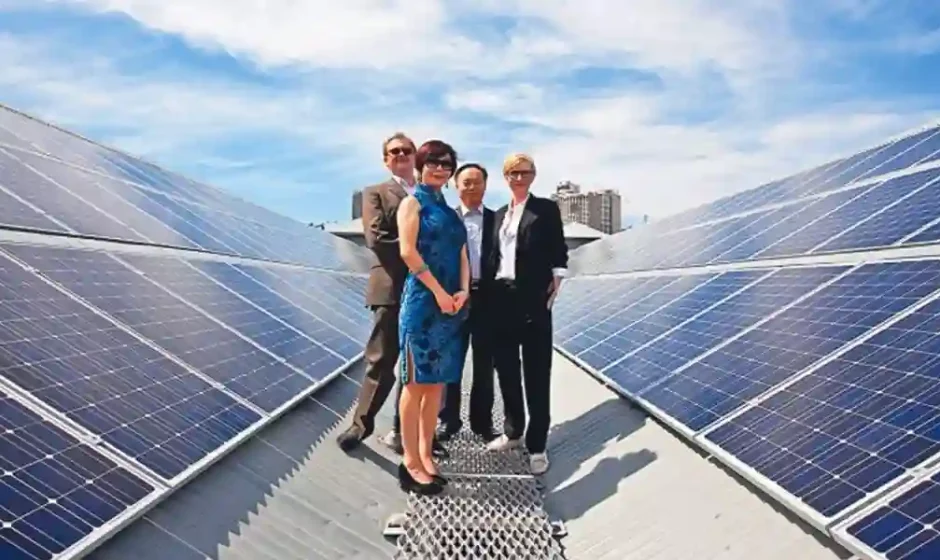Solar energy is a sustainable and cost-effective way to generate electricity, but it’s often associated with permanent installations on rooftops or properties owned by homeowners. However, for the growing number of renters or those who live in temporary housing, traditional solar panel installations might not be an option. Fortunately, there are portable and temporary solar solutions that allow renters to harness the power of the sun without the need for permanent alterations to their living space. In this comprehensive guide, we’ll explore these innovative solar options, their benefits, and how they can provide renewable energy solutions for renters.
The Challenges for Renters
Renting a home or apartment comes with various advantages, such as flexibility and reduced maintenance responsibilities. However, it can also limit the control renters have over their living space, particularly when it comes to making structural changes like installing solar panels. Here are some common challenges renters face:
- Lack of Ownership: Renters typically do not own the property they live in, making it challenging to invest in permanent solar panel installations.
- Permission and Regulations: Even if renters are interested in solar energy, they may need landlord permission, and local regulations may restrict the installation of solar panels on rental properties.
- Cost and Payback Period: The cost of a traditional solar panel installation can be substantial, and renters might not see a reasonable payback period if they plan to move in the near future.
- Limited Space: Apartment dwellers may have limited outdoor space or insufficient rooftop access for solar panel installations.
Portable and temporary solar solutions offer a way to overcome these challenges and enable renters to enjoy the benefits of clean energy.
Portable Solar Panels
Portable solar panels are lightweight, compact, and designed to be easily moved and set up as needed. They are an excellent option for renters who want a renewable energy source without the permanence of traditional solar installations. Here’s how portable solar panels work:
1. Ease of Installation
Portable solar panels are typically plug-and-play systems that require minimal setup. They come with built-in inverters, and you can connect them directly to your electrical devices or a battery for power.
2. Versatile Use
Portable solar panels can be used for a wide range of applications, including charging small electronics like smartphones and laptops, powering camping equipment, or even providing backup power during emergencies.
3. Mobility
Since they are designed to be lightweight and compact, you can easily transport portable solar panels wherever you need them. This mobility is ideal for renters who may move frequently.
4. No Structural Changes
Portable solar panels do not require any structural changes to your rental property, making them an attractive option for tenants who want to minimize the impact on their living space.
5. Affordability
Compared to traditional solar panel installations, portable solar panels are generally more affordable, making them accessible to a wider range of renters.
Temporary Solar Installations
Temporary solar installations, often referred to as “plug-and-play” solar kits, are designed to be installed for a specific period and easily removed when no longer needed. These systems can provide renters with a renewable energy source without any permanent alterations to the rental property. Here’s how temporary solar installations work:
1. Lease Agreements
Some companies offer temporary solar installations under lease agreements. Renters can have a solar system installed on the property for a predetermined duration, and the system is removed when the lease ends.
2. Minimal Installation Impact
Temporary solar installations typically involve the placement of solar panels on stands or racks in the yard or another open area. This avoids any alterations to the building structure.
3. Customized Solutions
Temporary solar installations can be tailored to renters’ specific energy needs, providing sufficient power for appliances, lighting, and other electrical devices.
4. Relocation
If renters move to a different property, the temporary solar installation can be relocated to the new location, offering flexibility and continued access to renewable energy.
5. Reduced Energy Costs
By harnessing solar energy, renters can reduce their electricity bills and potentially save money during their time in the rental property.
Solar-Powered Devices
Renters can also take advantage of solar-powered devices and appliances to reduce their reliance on traditional energy sources. These devices come with built-in solar panels and batteries, making them independent and portable sources of clean energy. Common solar-powered devices include:
- Solar-powered chargers: These are suitable for charging smartphones, tablets, and other small electronics.
- Solar-powered lights: Outdoor solar lights are a popular choice for renters, as they require no wiring and are easily installed in gardens, patios, or balconies.
- Solar-powered fans: Portable solar fans can provide ventilation and cooling without the need for electricity.
- Solar-powered water heaters: Some renters may have access to solar water heaters provided by their landlords, which can significantly reduce water heating costs.
Renters and Solar Energy: Benefits and Considerations
Benefits for Renters
- Sustainability: Renters can reduce their carbon footprint and contribute to a more sustainable future by using renewable solar energy.
- Cost Savings: Solar panels, portable solar solutions, and solar-powered devices can help renters save on their electricity bills over time.
- Flexibility: Portable and temporary solar solutions provide flexibility, allowing renters to take their renewable energy source with them when they move.
- Energy Independence: Solar energy provides renters with a degree of energy independence, as they are not solely reliant on grid electricity.
Considerations for Renters
- Permission: Renters should always check their lease agreements and obtain landlord permission before installing any solar equipment.
- Return on Investment: Depending on the specific solar solution chosen, renters should evaluate the return on investment and consider the duration of their lease.
- Resale Value: Some portable solar panels and solar-powered devices can be resold or reused when they are no longer needed, offering potential value.
- Maintenance: Renters should be aware of the maintenance requirements of their solar equipment and ensure it remains in good working condition.
Conclusion
Renters no longer need to miss out on the benefits of solar energy. Portable solar panels, temporary installations, and solar-powered devices offer accessible and eco-friendly options for harnessing the power of the sun. By embracing these innovative solutions, renters can enjoy cost savings, sustainability, and the flexibility to take renewable energy with them wherever they go. As the renewable energy landscape continues to evolve, renters have more opportunities than ever to contribute to a cleaner and more sustainable future.



